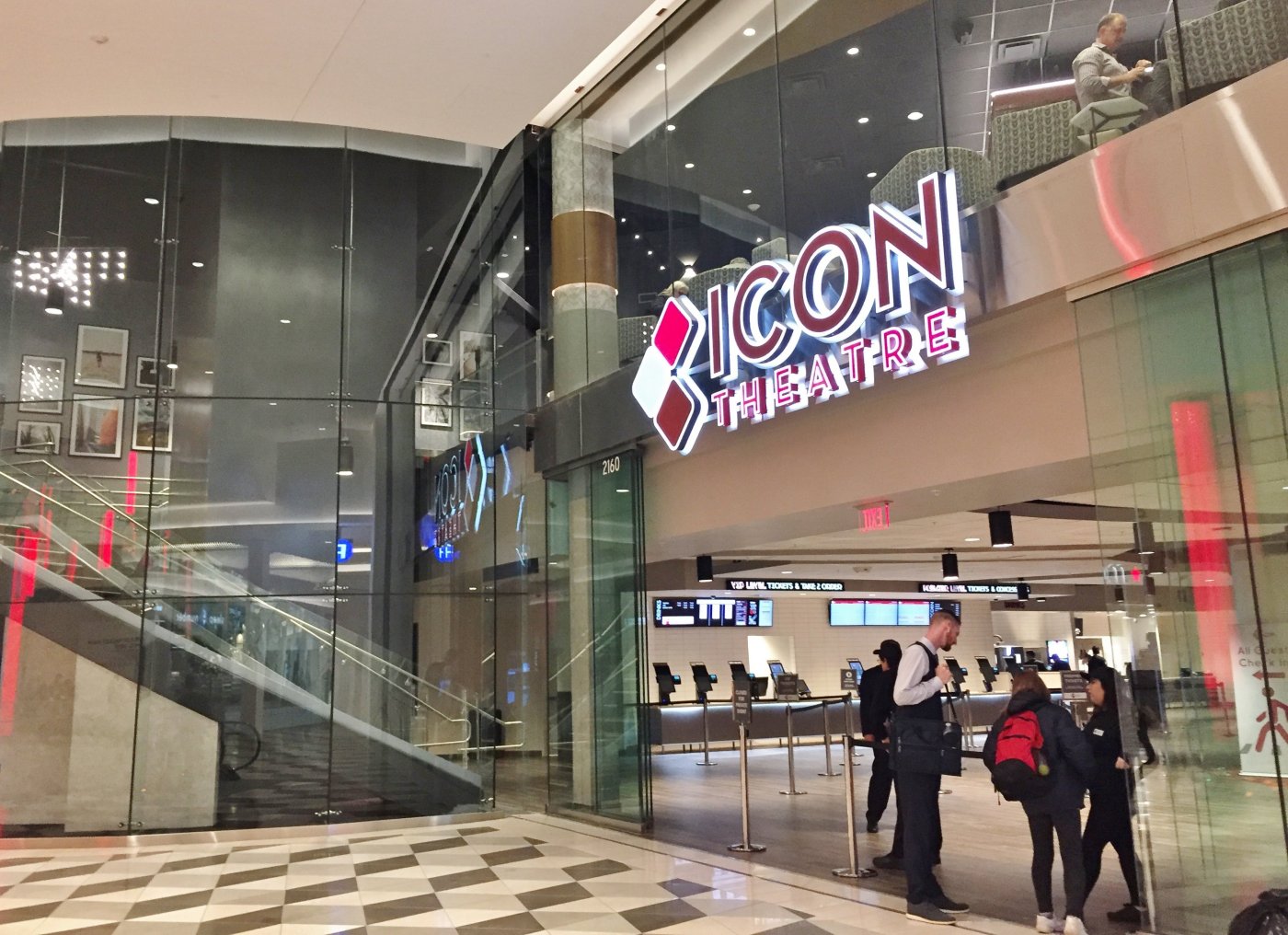Out of the dozens of movie theaters in the Bay Area, Michael Wang’s favorite was the ShowPlace Icon theater at Valley Fair in San Jose.
When Icon opened its doors in 2019 at the Westfield Valley Fair mall, it pledged to be a comfortable and engaging spot for locals to see the latest blockbuster on the big screen. The promises didn’t disappoint returning customers like Wang, who enjoyed the spacious bar and food area, reasonable movie ticket prices and close proximity to a bustling retail space.
But then came the plot twist. Over the years, the theater staff dwindled and the crowds stopped coming. Next thing the San Jose resident knew, he was reading an email sent by Icon’s staff, announcing the closure of its Valley Fair and Mountain View theaters on July 1, 2024. “It was disappointing,” Wang recalled.
And just like that, Icon Valley Fair and Mountain View became another casualty of movie theater closures that have been sweeping the Bay Area recently.
The Illinois-based Kerasotes ShowPlace Theatres — which once operated 95 theaters across multiple states — didn’t publicly state a reason for the closures, or respond to a request for comment. The company recently closed its last remaining theaters in Chicago and St. Louis, deleted their website and deactivated their social media accounts.
In 2023, Regal Cinemas closed 39 movie theaters across the United States, including in downtown Berkeley, months after its parent company Cineworld filed for bankruptcy. In 2022, Danville’s only movie theater, Century Blackhawk Plaza theater, ceased operations after three decades following back-and-forth lease renewal negotiations with the property owners. Its departure closely followed nearby Regal Crow Canyon’s in San Ramon. Palo Alto’s CineArts movie theater, which is owned by Cinemark, permanently shut its doors in 2021 after initially closing in 2020 for COVID-related reasons.
At first, the pandemic shouldered the blame for such shutdowns. Shelter-in-place and social distancing orders temporarily closed theaters, denying them revenue from ticket sales and concessions. The number of U.S. movie screens declined 5.3% between 2019 and 2022, industry data reveals.
But even as audiences returned to theater life, operators faced other challenges: Hollywood writers’ and actors’ strikes halted film production and releases, inflation increased operating costs and movie streaming platforms surged in popularity. An estimated 99% of U.S. households subscribe to one or more streaming services, with Netflix, Amazon Prime Video and Apple TV+ among the most popular, according to a recent Forbes study that surveyed the streaming habits of 1,000 Americans.
All of these factors play a role in the decline of theaters, according to Matt Kircher, an executive vice president for CBRE who leads a retail leasing practice in San Francisco. CBRE is a global commercial real estate company with offices in San Francisco and San Jose, and ShowPlace ICON was one of Kircher’s clients.
Theaters are often centered in malls or shopping centers, which are becoming less popular in general (25% of America’s roughly 1,000 malls are expected to close by 2025, according to retail data from Coresights Research).
It’s common nowadays for theater operators to renegotiate their rent with landlords to accommodate for a slower market, according to Kircher. “On the landlord side, they want to keep the theaters going,” he said. “They are difficult to convert.”
Although theaters are having a tough time, Wang said he’s still interested in supporting them — even if they aren’t ICON. “I’m old-fashioned,” he said. “I still prefer in-person theaters.”
There maybe a chance he can return to a San Jose-based theater. Public records show that popular theater chain Alamo Drafthouse applied for license to serve food and beverages at the former ICON Mountain View and San Jose sites. Alamo currently operates one theater in the Mission District in San Francisco, which opened in 2015. Locals still flock to the five-screen theater each week, especially for Alamo’s theme nights like Terror Tuesday, which shows horror films.
Another alternative for Wang would be to turn to locally owned theaters, which are finding their own ways to regain momentum after the pandemic.
Related Articles
New East Village logo captures San Jose business district’s funky vibe
Film noir festival opens at Stanford Theatre this weekend
First clip released for unauthorized Trump biopic ‘The Apprentice’
Fall movies 2024: From ‘Beetlejuice’ to ‘Wicked,’ here’s what’s headed our way
Blake Lively’s brother-in-law speaks out amid ‘It Ends With Us’ cast drama
For instance, CineLux Theaters, a locally owned company that first opened in Campbell in 1966, is upgrading several of its theaters to include more comfortable seating and entertaining areas for its loyal customers. Second-generation owner Paul Gunsky said staff are also doing “everything we can” to keep admission prices affordable amid a changing economy. A general admissions AMC ticket, for example, can cost more than $20, but at CineLux tickets are under $15 for all ages.
“We’re really close to all our communities,” Gunsky said “We just try to be there for them.”
The pandemic may have been a low point for movie theaters, but in recent years the industry has been coming back “super strong,” Gunsky said.
“There was such a pent-up demand for movies,” he said. “The public, they want to see great films in movie theaters — whether it is a love story, an epic Marvel film, or comedy.”
In the East Bay, Kenny Way, owner of Vine Cinema in downtown Livermore, is also optimistic that theaters will regain their popularity. The Vine, which first opened in 1956, temporarily closed in 2020 because of the pandemic — and at one point, resorted to selling popcorn and other concessions on weekends to help pay the rent. Since the theater reopened in 2021, staff have planned new events to keep locals engaged.
One of those includes inviting celebrity guests to talk about their films. Such events are usually scheduled on weekdays, when traffic is slower, to entice more moviegoers. In 2021, the Vine hosted a screening of “Jesus Christ Superstar” complete with an appearance by the film’s lead, Ted Neeley. Recently, the cinema hosted a screening of Fremont native Sean Wang’s award-winning film “DiDi” along with a Q-and-A session with one of the co-stars. “Anytime we get a celebrity here, it’s a lot of fun,” Way said.
The most recent blockbuster films, “It Ends With Us” and Marvel’s “Deadpool & Wolverine”, have also attracted more moviegoers, Way said.
“Movie theaters are not going anywhere in terms of going out of business,” he said. “They are not as busy as they once were pre-COVID, but I feel confident we’ll get there.”












